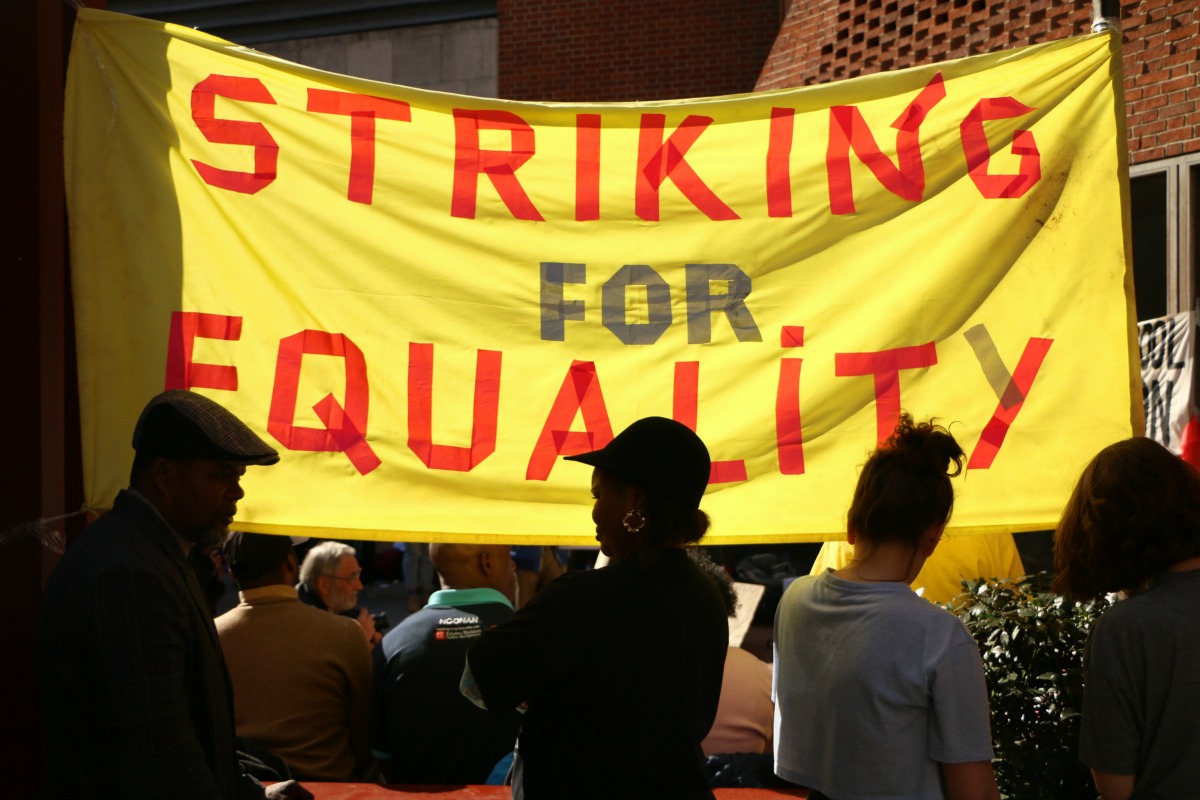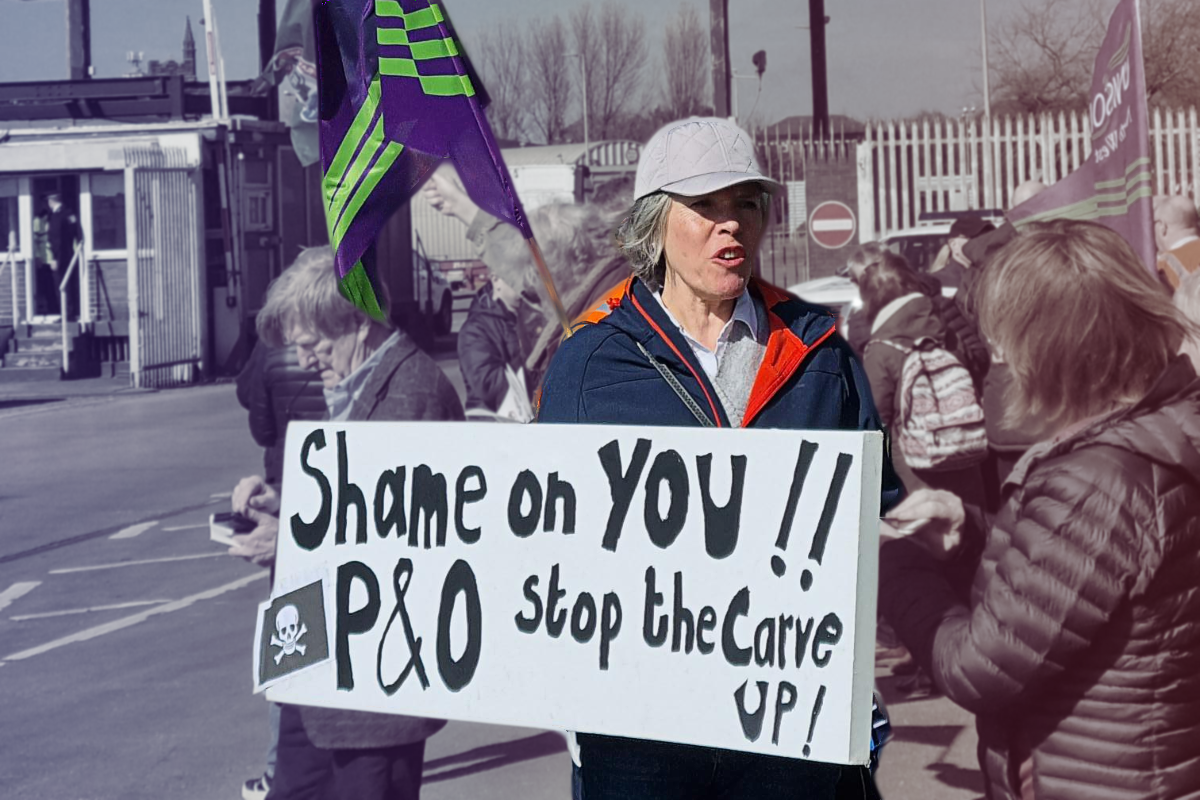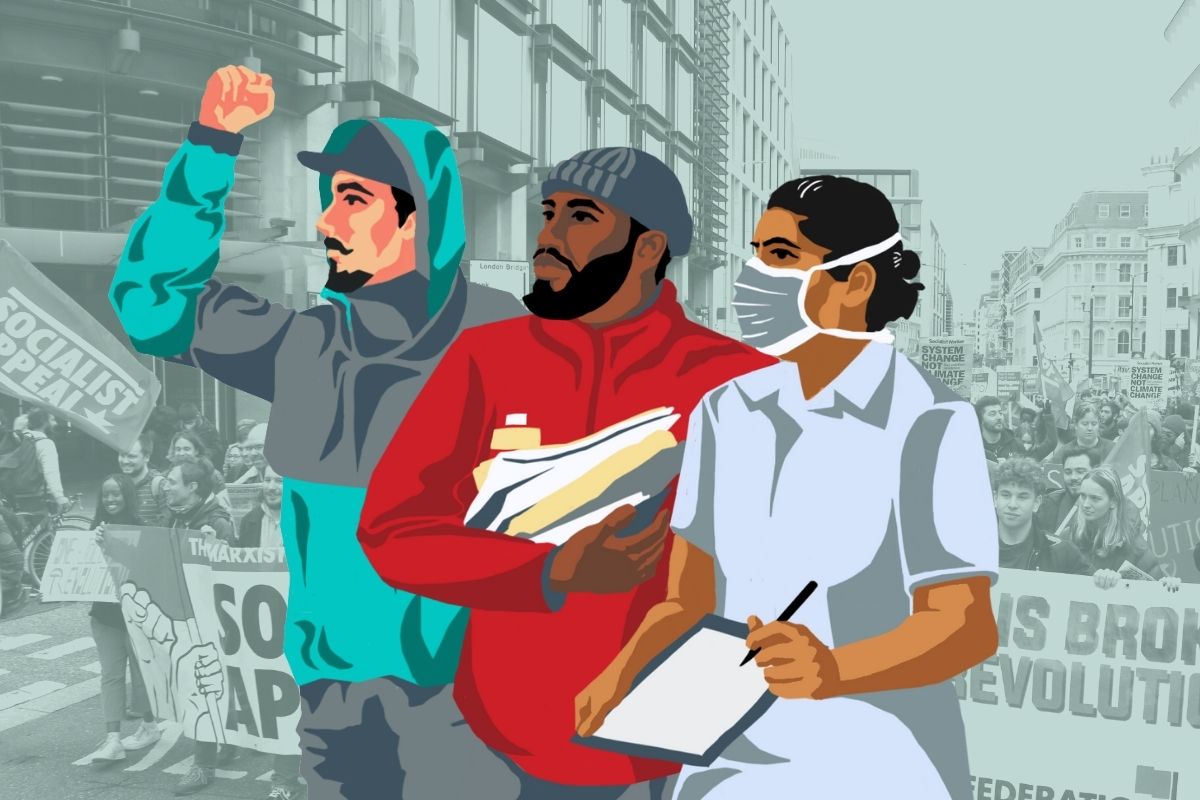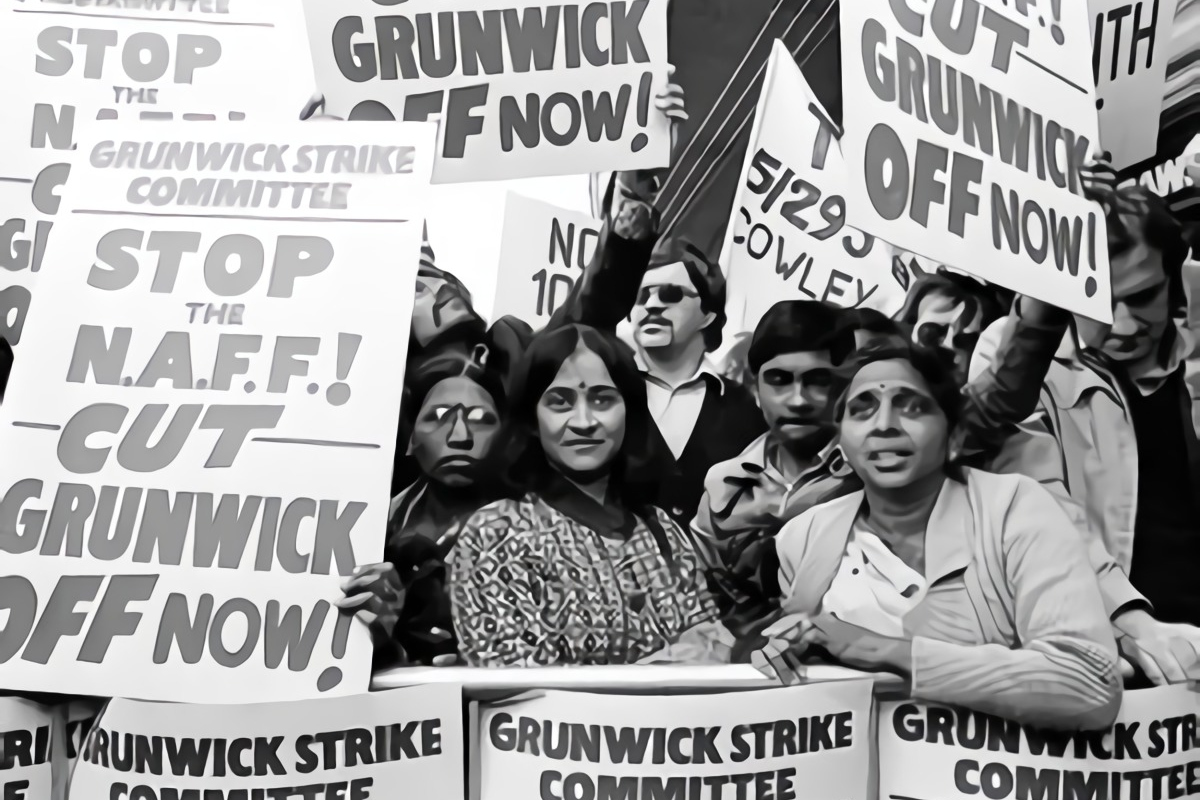On top of the onslaught facing all workers, a recent TUC report highlights the racism suffered by black and Asian employees in Britain. To fight back against the bosses’ divisive attacks, we need united class struggle and workers’ control.
Earlier this year, the TUC (Trades Union Congress) released a report on racism in the workplace, illustrating the extent of discrimination and bigotry that black, Asian, and minority ethnic (BAME) workers face under capitalism today.
According to the study, 21% of BAME workers have been bullied or harassed at work. And more than 120,000 workers from such backgrounds have quit their jobs because of racism.
Workers from ethnic backgrounds, meanwhile, are “massively over-represented” in casualised jobs, with 13% of BAME workers reporting that their working hours had been changed at short notice.
This is on top of the disproportionate effect that the pandemic had on these layers of workers, with the report stating that: “BAME workers were more likely to do dangerous work, contract [COVID-19] and die from it.”
This also means that the cost-of-living crisis is hitting these workers especially hard – at a time when the whole working class is facing the prospect of a cold winter.
Sowing illusions
 The TUC correctly points out that “racism…is used to divide working people”. Yet this directly contradicts the authors’ own suggestions for how to fix the problem: by appealing to the bosses and the capitalist state.
The TUC correctly points out that “racism…is used to divide working people”. Yet this directly contradicts the authors’ own suggestions for how to fix the problem: by appealing to the bosses and the capitalist state.
The TUC naively remarks that “[the] report ought to act as a wake-up call for employers, policymakers, and politicians”, before going on to say that “the government should…ensure that all workers benefit from the same employment rights”.
The labour movement should certainly demand proper redundancy pay, sick pay, and other workers’ rights, in order to win equal, decent wages and conditions for workers of all backgrounds.
But to politely ask the Tory government or the bosses to grant such concessions is to place false hope in the very class that actively uses racism and sexism to split the working class – along lines like ethnicity and gender – in order to divide, weaken, and further exploit all workers.
Jobs massacre
 This was expressed openly and clearly in the disgusting chauvinism of the capitalist press during the ‘jobs massacre’ at P&O Ferries earlier this year, when 800 workers were dismissed en masse.
This was expressed openly and clearly in the disgusting chauvinism of the capitalist press during the ‘jobs massacre’ at P&O Ferries earlier this year, when 800 workers were dismissed en masse.
These rags continually highlighted that the underpaid agency staff brought in to replace the sacked ‘British’ workers were generally from overseas.
By employing migrant labour, P&O bosses were able to use legal loopholes in maritime law to only pay these non-unionised workers wages equivalent to those in their native countries.
This is where racism comes from: a concerted effort by the capitalists to distract from the real division in society – the class divide between workers and bosses – by blaming one group of workers for the race to the bottom that all workers face.
In response, however, RMT general secretary Mick Lynch correctly stated that the answer to the bosses’ use of super-exploited migrant labour is for the unions to organise these workers as well.
Similarly, a number of the agency workers brought in by P&O bosses showed solidarity with their sacked peers, resigning in protest at the sackings, and refusing to replace those made unemployed.
The solution to the capitalists’ divide-and-rule tactics, in other words, is class unity.
Unconscious bias training
 One of the methods often proposed to fight racism – particularly in workplaces – is that of ‘unconscious bias training’ (UBT).
One of the methods often proposed to fight racism – particularly in workplaces – is that of ‘unconscious bias training’ (UBT).
UBT endeavours to curb discrimination and overcome ‘negative biases’ about race by simply explaining these implicit biases to people, so that they might consciously avoid them.
In spite of £5.8 billion being spent on diversity training just in the US, however, there is no evidence that UBT actually works.
Similarly, a 2020 statement by the UK Cabinet Office determined that: “There is currently no evidence that this training changes behaviour in the long term or improves workplace equality in terms of representation of women, ethnic minorities, or other minority groups.”
In one study, comparing the effects of eight UBT interventions amongst over 6,000 non-black Americans, the effects of all interventions disappeared within 1-5 days.
This shows the utter failure of utopian liberal reforms, which try to solve racism by slowly changing individuals’ ideas, whilst leaving the exploitative, oppressive capitalist system intact and untouched.
Class struggle
 For socialists, the way to overcome any prejudices that do exist in society is through building strong workers’ organisations, and through united class struggle against the bosses, in order to bring out the real common interests that all workers share.
For socialists, the way to overcome any prejudices that do exist in society is through building strong workers’ organisations, and through united class struggle against the bosses, in order to bring out the real common interests that all workers share.
Without class struggle methods, the fight against racism is reduced to a question of mindset or culture. But the ‘culture’ of any workplace can only be truly transformed on the basis of changing the conditions and relations of work in general. And this means, above all, booting out the bosses who foment racism and benefit from it, and putting organised workers in control.
We cannot solve the problem of racist language or ‘jokes’ at work in isolation from the systemic discrimination and oppression in wider capitalist society.
In the final analysis, it is conditions that create consciousness. We cannot end bigotry and oppression without abolishing the system that breeds it.
‘Solutions’ like unconscious bias training will never work in a meaningful manner, since they do not address the fundamental question: Where do these ideas come from?
The blame lies firmly with the ruling class, who continually whip-up racism and anti-immigrant sentiment in order to divide workers and prevent them from organising along class lines. Disunity in the workplace creates much harder ground upon which to build for strike action, for example.
That is why it is imperative that the trade union movement reaches out to those who face racism at work, and brings them decisively into the struggle. Only in this way can genuine inroads be made into tackling any backward ideas that may exist within the workplace.
Lessons of Grunwick
 46 years ago in Britain, for example, the struggle of the predominantly Asian workers at the Grunwick film processing firm was supported by workers of all backgrounds.
46 years ago in Britain, for example, the struggle of the predominantly Asian workers at the Grunwick film processing firm was supported by workers of all backgrounds.
At Grunwick, pay was low; hours were long; and overtime could be enforced at any time on the un-unionised workforce.
During the summer of 1976, conditions worsened due to a heatwave. One worker, Devshi Bhudia, was sacked for “working too slow”. Three other workers walked out in solidarity, with another being fired for no reason. These workers picketed and joined the APEX union (now part of GMB).
Their strike grew in numbers, as did support from the wider labour movement, through their class organisations. For example, members of the postal workers’ union would refuse to deliver mail to the Grunwick site, in order to avoid crossing the picket line.
This unity of workers terrified the bosses, resulting in collusion between the police and management at the firm, with hundreds arrested.
The workers bravely continued their struggle, in spite of the cowardly union bureaucrats abandoning them, until the dispute was defeated in July 1978.
Fight for socialism
Although the strike ended in defeat, it serves as a clear example of how militant class struggle can quickly overcome decades of divide-and-rule tactics from the capitalists.
The Grunwick strike brought workers together from different backgrounds, and demonstrated clearly their common class interests.
This has been shown time and time again to be the only way to overcome racism, sexism, and all other forms of bigotry: not through appealing to the bosses, or by relying on diversity quotas and other liberal reforms, but through the experience of struggling together as a class in the fight for a socialist future.






